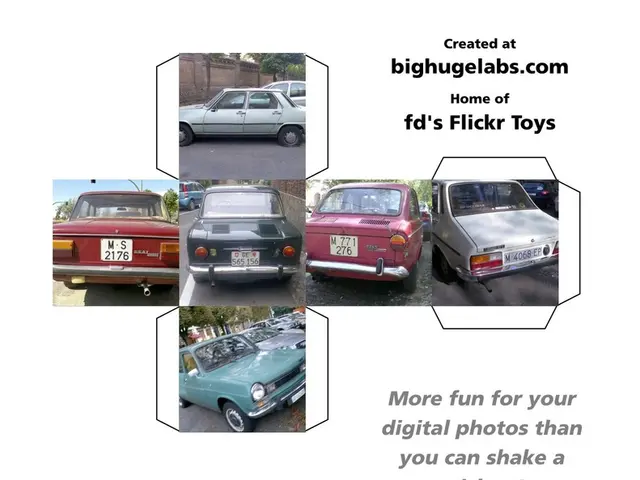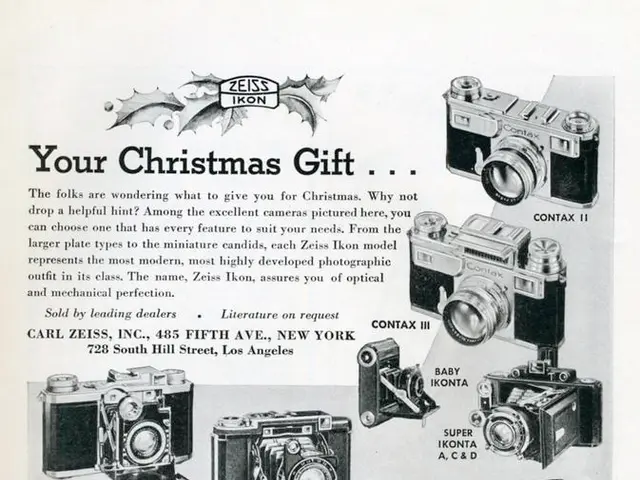Brands Owning Other Car Brands in the Automotive World
Revved Up: Unraveling the Titans Behind the Wheel
The automotive industry is a tangled web of deals, mergers, and strategic partnerships. Global car brands roll under the domination of larger parent companies, forming an interconnected network of automotive manufacturers. Here's a peek into some iconic car brands and their titans calling the shots.
The Volkswagen Group: Imperial Influence
The Volkswagen Group, one of the world's colossal automotive empires, spreads its grasp from Germany. Its roster of offspring brands stretches farther than its homeland, with the trio of Audi, Porsche, and Bentley leading the luxury charge, and Bugatti bearing the torch of high performance. The company's portfolio doesn't skimp on practicality, including SEAT, Škoda, Lamborghini, and Ducati, patients of its dedication to quality and innovation.
Toyota: The Reliable Innovator
Toyota, a Japanese stalwart, commands respect with its stringent emphasis on reliability and innovation. The likes of Toyota and Lexus inhabit this world, joined by Daihatsu specializing in compact cars and Hino, a front-runner in commercial vehicles. The company wields a significant stake in subsidiary Subaru, hitting the bullseye with its strategic partnerships.
Stellantis: A Titanic Fusion
Stellantis, born from the nuptials of FCA and PSA Group, is a recent giant with an ever-expanding history. Its empire encompasses American legends like Jeep, Dodge, RAM, and Chrysler, alongside European veterans Peugeot, Citroën, Opel, and Renault. Maserati and Alfa Romeo name the brands competing in the luxury and performance market, reveling in Stellantis' shared technologies for gain.
General Motors: An American Empire
General Motors, a titanic Detroit titan, oversees Chevrolet, GMC, Cadillac, and Buick. Cadillac leads as the flagship luxury brand, while Chevrolet and GMC command the masses. In recent years, the company has trimmed its global operations, nonetheless maintaining a key role in North America and beyond.
BMW: A Symphony of German Engineering
BMW is synonymous with German craftsmanship and performance, with the group controlling the brands MINI and Rolls-Royce, too. Each brand marches to the beat of a unique drum, tailoring to distinct market segments, without sacrificing the group's shared technologies.
Hyundai Motor Group: Korea's Ultimate Exporter
Hyundai Motor Group reigns as the largest South Korean vehicle producer and boasts ownership of Hyundai, Kia, and Genesis. Kia's lineup encompasses budget-friendly vehicles, while Genesis challenges the luxury market, trading blows with BMW and Mercedes-Benz.
The Renault-Nissan-Mitsubishi Alliance: United in Strength
The Renault-Nissan-Mitsubishi Alliance, a strategic powerhouse, melds the forces of three automotive titans. Each brand maintains a distinctive identity, but they pool technology and platforms to bolster efficiency and lessen costs, proving collaboration is no obstacle in a competitive arena.
Tata Motors: Powerhouse from India
Tata Motors, based in India, conjured up the ownership of Jaguar and Land Rover, the quintessential British brands. Fundamentally acquired from Ford in 2008, these labels have revived under Tata's watch, focusing on electrification, modernization, and design.
Wrapping Up
The mind-bending web of car brand ownership underscores the globalization of the automotive industry. Parent companies reap benefits from sharing resources, technology, and skills to cater to diverse markets, all while protecting their cherished brand identities. As the industry pushes towards electrification and sustainability, these alliances and acquisitions shape the future of motoring.
Penned: 6th January 2025
For more such revelations, follow us on Twitter, LinkedIn & Instagram
Additional Insights:
- In terms of parent companies, Porsche Automobil Holding SE holds a significant stake in the Volkswagen Group, while Toyota Corporation's parent company is Toyota Group.
- The brands under Stellantis encompass Fiat, Abarth, Alfa Romeo, Chrysler, Dodge, Jeep, Lancia, Maserati, Opel, Peugeot, Renault, Vauxhall, DS Automobiles, and RAM.
- Lastly, Tata Group, the parent company of Tata Motors, is an Indian conglomerate with numerous businesses ranging from information technology and communications to hospitality and consumer goods.
Technology plays a pivotal role in the strategic partnerships and mergers within the automotive industry, enabling parent companies like Toyota Group (owning Toyota) and Tata Group (owning Tata Motors) to share resources and reinforce their competitive edge. In finance, these companies invest in research and development, leading to innovation in the transportation sector, such as electric vehicles. For instance, the Renault-Nissan-Mitsubishi Alliance, by pooling technology and platforms, enhances efficiency while lessening costs in the development and production of diverse vehicles.








